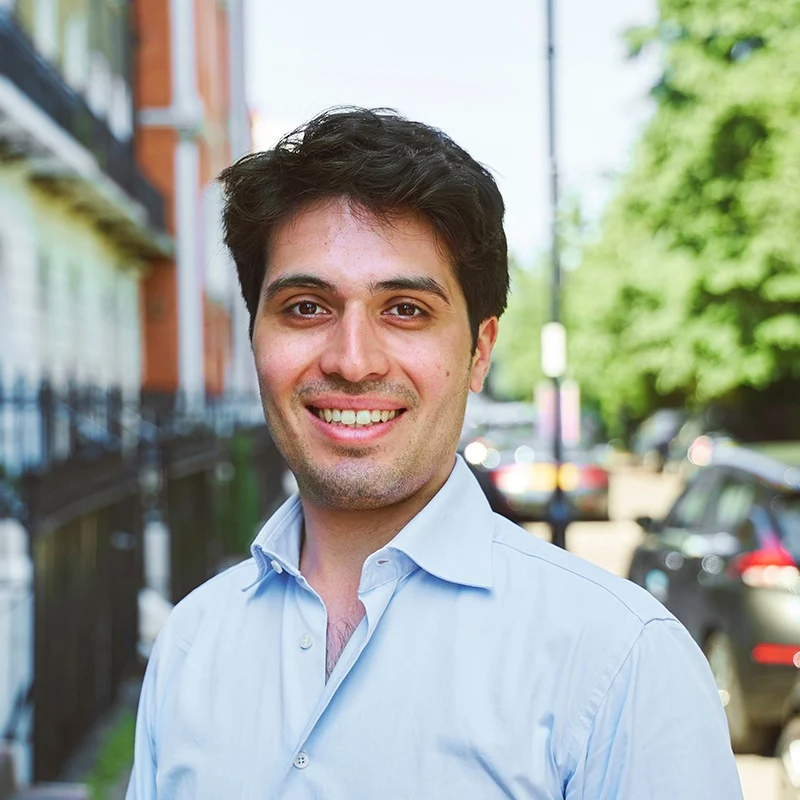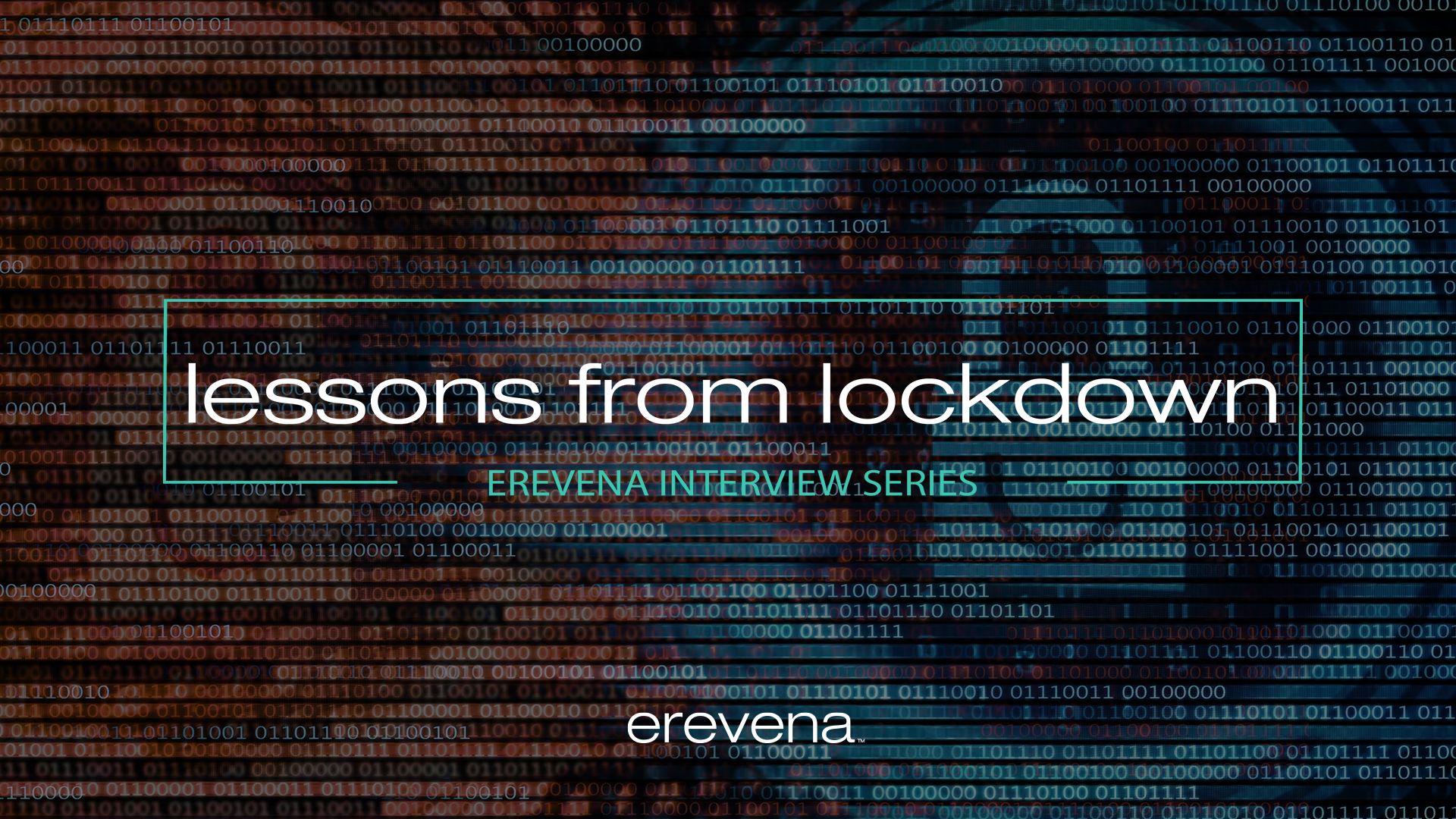Tobias Rijken, CTO and Co-founder at Kheiron Medical Technologies talks to Erevena about the challenges of hiring during lockdown.
Tobias Rijken is CTO and Co-founder at Kheiron Medical Technologies, which was founded in London in 2016 with the sole focus of helping radiologists detect breast cancer earlier with machine learning software. Kheiron offers a breast-screening product called Mia, which serves as a “second reader” to help radiologists decide whether to recall a patient for further evaluation. It’s designed as a supportive tool rather than to replace medical professionals — an automated second opinion. In 2019 they raised $22m in Series A round of funding led by Atomico, with participation from Greycroft, Connect Ventures, Hoxton Ventures, and Exor Seeds.
How have the challenges of remote hiring varied according to seniority?
We have had some experience previously of remote hiring, as we are head quartered in London, with distributed offices in San Francisco, the Netherlands and Budapest. Historically we’ve hired with large parts of the process running remotely, but there has always been a physical element too. However, the recent Covid-19 pandemic has meant that we have recently hired both senior and junior roles as a fully remote process.
“I’m reasonably positive about remote hiring.”
With more junior engineering roles, we have a well-defined 3 stage process defined of cultural screening; technical screening and a take home assessment followed by an on-premise white boarding session, and this has transformed into a fully remote process, using video conferencing and Google Docs.
A more flexible process with senior hires has allowed us to make the changes very smoothly. As part of the process for senior team members we ask them to interview their future team and then present a plan back to us. We’ve found moving these presentation working sessions to Zoom works well, and in some cases can be even more effective as it allows candidates to present their thoughts and control the session.
However, assessing the cultural fit is more of a challenge.
“I’d say we have adapted smoothly to the current climate.”
How do you assess culture fit remotely?
We set up lots of sessions and get the candidates to spend time with various people across the business, we want them to have a good experience. You need to look at it from the candidates’ point of view too, they wouldn’t normally accept a job offer without meeting the company. We focus on creating lots of touch points to build rapport. It’s important to be very intentional about those touch points, to make sure that you talk about the things that are important to the candidate too such as relocating. We would normally have a dinner or at least drinks with senior candidates, so now we’re looking at more creative ways to build informal relations such as drinks over Zoom.
“You need to put in the effort and the hours, this can be done remotely.”
This process doesn’t stop once someone joins, we’ll continue to schedule lots of touch points to build rapport by sharing personal experiences and the hard stuff that we’ve had to do over the past year. You have to be explicit that you’re going to talk about these more personal experiences.
Have you experienced any positives from remote hiring?
I think that remote hiring can give the candidate a less stressful experience. Rather than flying people internationally and putting them up in a hotel and setting up a series of dinners and meetings, the candidate may feel more relaxed. It’s a more restful process rather than cramming a number of meetings into a day or two when they may be jet lagged. Being able to carry out interviews from the comfort of your own home can help both the candidate and the company.
I think it maybe be easier for tough conversation to happen over Zoom. It’s extremely important that any new leader of a team builds a good rapport with his new reports and feedback from a team member through the interface of Zoom may be easier. Any tough discussions can be easier if they’re not face to face, particularly if people are in a position where they feel that they are being demoted.
Have you restructured your hiring process as a result of the lockdown?
We have a fairly set and reliable process for more junior hires. We miss the ability to whiteboard with them dynamically in-person, but multiple Zoom interactions are balancing that issue. With more senior executives, it requires many more interactions, both scheduled topic discussions but also informal meetings, so the cadence of interactions is evolving to ‘little and often’.
Also, with a less fierce war for talent currently, there are opportunities to be even more discerning with hires and we are at a scale where internal referrals are also proving highly effective.
How will this experience affect how you structure your team longer term?
I’ve observed a couple of things – we have multiple offices, but the critical mass is in London, so previously some of the smaller offices felt detached. We’ve seen this change and they now feel much more integrated. We’ve changed the way that we hold our weekly ‘All Hands’ meeting, and I think they’re much more effective online. This meeting includes an open Q&A session which is very important for our open culture. We’ve observed that since running it remotely we’ve been getting more questions, and many more direct questions which is great. We definitely want to keep this up when we return to office-based working.
“Now everyone is working remotely the balance of power between the offices has shifted and there a more inclusive feeling across the whole company.
There’s not a whole lot of work that we need to be together for physically at the moment as we’re executing on existing designs. But at the new design stage it will be different; even with tools such as electronic white boards there are things that will be hard to transcend to digital means. To be effective as a product team we need to be face-to-face, with the chemistry of interaction around innovation, not execution.
I’ve noticed that not having to commute and with fewer distractions in the office I personally have more focused time to work and this has allowed me to be incredibly productive. My challenge as a leader is how do I scale my ability to provide context for a larger group of people and share my thinking through mechanisms such as blog posts. I now have more time for this and see it as an opportunity for me to strengthen my skills further and will explore how I can keep this increase in productive time in the future, looking at things such as working at home one day a week.
“I’ve realised that we can be very productive working from home, using commute time to get ahead on topics that require deeper thought in quieter environments”
Share this article:











